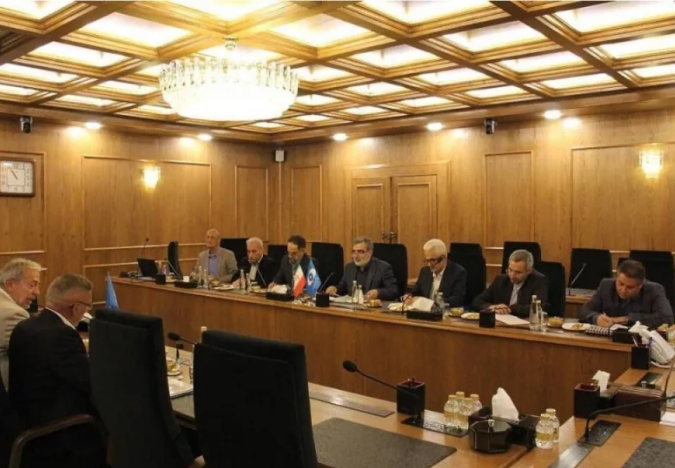In a unified statement, the United Nations Security Council on Thursday emphasized the critical role of the United Nations Relief and Works Agency for Palestine Refugees in the Near East (UNRWA), highlighting its unique position in delivering essential humanitarian aid to Palestinian refugees. The council underscored that any interruption to UNRWA’s operations would have severe humanitarian repercussions for millions and pose significant implications for the region’s stability.
The statement comes as recent Israeli parliamentary legislation threatens to limit UNRWA’s activities, banning the agency from operating within Israel and restricting Israeli authorities from engaging with the agency. Council members expressed “grave concern” over these developments, urging Israel to honor its international responsibilities and facilitate safe, rapid, and unhindered humanitarian access to Gaza.
“The UNRWA remains the backbone of all humanitarian response in Gaza,” the Security Council statement read, warning that “no organization can replace its role.” Established in 1949, UNRWA serves as the primary source of humanitarian relief, education, healthcare, and social services for Palestinian refugees across Gaza, the West Bank, Jordan, Lebanon, and Syria. The council reiterated that dismantling or weakening UNRWA would disrupt essential services, jeopardize lives, and escalate regional tensions.
The council’s statement called for respect for UNRWA’s mandate, emphasizing the humanitarian principles of neutrality, impartiality, and independence as essential in all conflict zones. Council members reminded Israel of its obligations to protect UN facilities and respect international humanitarian law, calling on all parties to ensure UNRWA’s ability to operate unimpeded.
The recent Israeli legislation prohibits UNRWA from conducting any operations within Israeli territory, marking an escalation in long-standing tensions over the agency’s role in Gaza and other regions. Proponents of the legislation argue that UNRWA’s mandate no longer aligns with Israel’s objectives, while critics warn that its absence would further complicate humanitarian efforts for Palestinian refugees. The new laws also bar Israeli officials from having direct contact with UNRWA representatives.
UNRWA’s provision of emergency assistance, including food aid, healthcare, and education, is seen as irreplaceable for Palestinian refugees. The agency also operates schools and clinics throughout Gaza, the West Bank, and neighboring countries, reaching approximately five million Palestinian refugees.
The Security Council’s statement concluded with a strong appeal for all parties to respect UNRWA’s operational rights, noting the necessity of its presence in upholding humanitarian standards and addressing the basic needs of Palestinian refugees. The council reiterated that preserving UNRWA’s functions is not only a humanitarian imperative but a stabilizing force in a volatile region.


